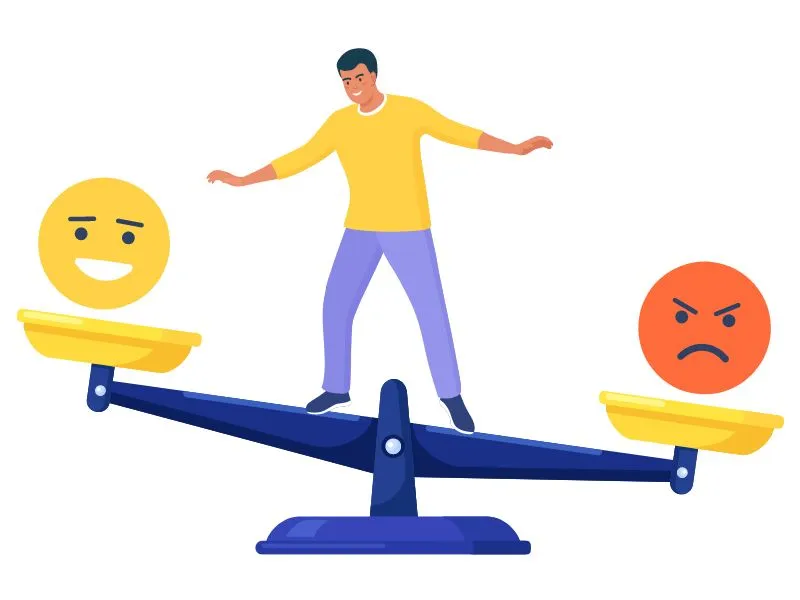Emojis are becoming a crucial component of digital communication. We utilize them to communicate our feelings, add humor, and develop closer relationships with our friends, family, and coworkers. However, did you know that emojis may also be beneficial to our mental health?
According to research published in the Journal of Radiotherapy in Practice, emojis might be a valuable tool for assessing mental wellness. In relation to the study, those who expressed their feelings using emojis were more likely to say they felt more optimistic about their mental health.
Emoji usage can foster a greater interpersonal connection, according to a study uncovered and published in the journal Emotion. According to the survey, those who used emojis in their online communications felt more connected to their friends and family and less lonely.
So how can emojis be used to improve mental health? Here are some pointers:
- Use emojis to express your emotions. Use an emoji to convey your feelings when you're joyful, depressed, furious, or experiencing any other emotion. By doing so, you may feel more emotionally aware of and connected to people.
- Use emojis to connect with others. Emojis might help you connect with your friends and family if you're feeling lonely or alone. Send them an emoji-filled text message or add one to your remark on one of their social media posts. You may experience reduced sensations of isolation and a stronger sense of community.
- Use emojis to add humor to your communication. Emojis may be a fantastic way to spice up your communications with humor. Use a few emojis to brighten the atmosphere if you're feeling worried or nervous. You may feel better as a result, and your stress levels may decrease.
Emojis are an effective tool that may be utilized to enhance mental health. We may improve our mental health and lead happier, healthier lives by using emojis to communicate our feelings, connect with others, and bring humor to our conversations.
The following are some other ways that emojis might be used to improve mental health:
- It's possible to initiate dialogues about mental health with emojis. Emojis may be used to strike up a conversation with a friend, family member, or mental health professional if you're having mental health issues. You might, for instance, send a text message saying, "I'm not feeling well," along with a sad emoji. This helps you speak openly about your emotions and get the assistance you require.
- Emojis may be utilized to provide a secure environment for discussing mental health. It may be used to provide a safe environment for discussing mental health. You might use a heart or a thumbs-up emoji to indicate that you're paying attention or understanding. This may ease the awkwardness of the talk.
- Emojis may be used to raise awareness of mental health issues. It may raise awareness of mental health issues in your community, at work, and on social media. To share information on mental health, use the hashtags #MentalHealthAwarenessDay or #WorldMentalHealthDay. Emojis might be used to make flyers or posters on mental health.
Conclusion
Emojis are a powerful tool that can be used to support mental well-being. By using emojis thoughtfully and intentionally, we can help improve our mental health and promote mental health awareness in our communities.
At Solh, we recognize the significance of emojis in promoting mental well-being. That's why we have introduced the Mood Meter feature, offering a variety of emoticons for you to rate your mood throughout the day or month. By utilizing this feature, you can track your emotions and, ultimately, receive a comprehensive mood analysis at the end of your chosen time frame.



